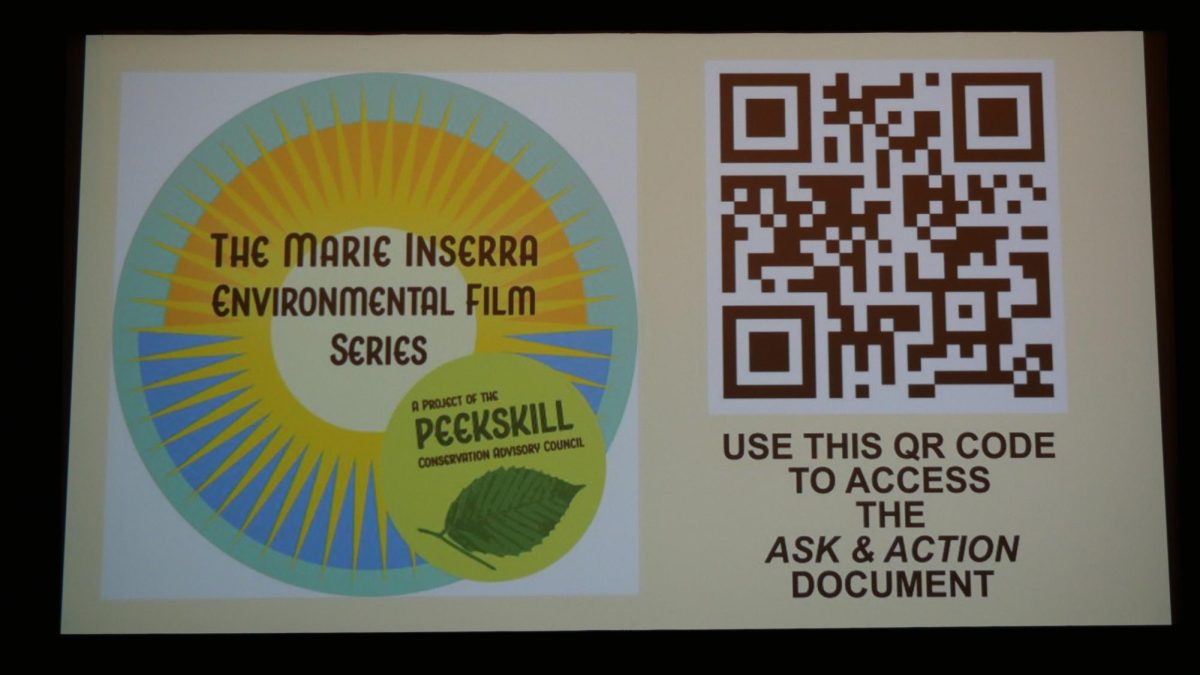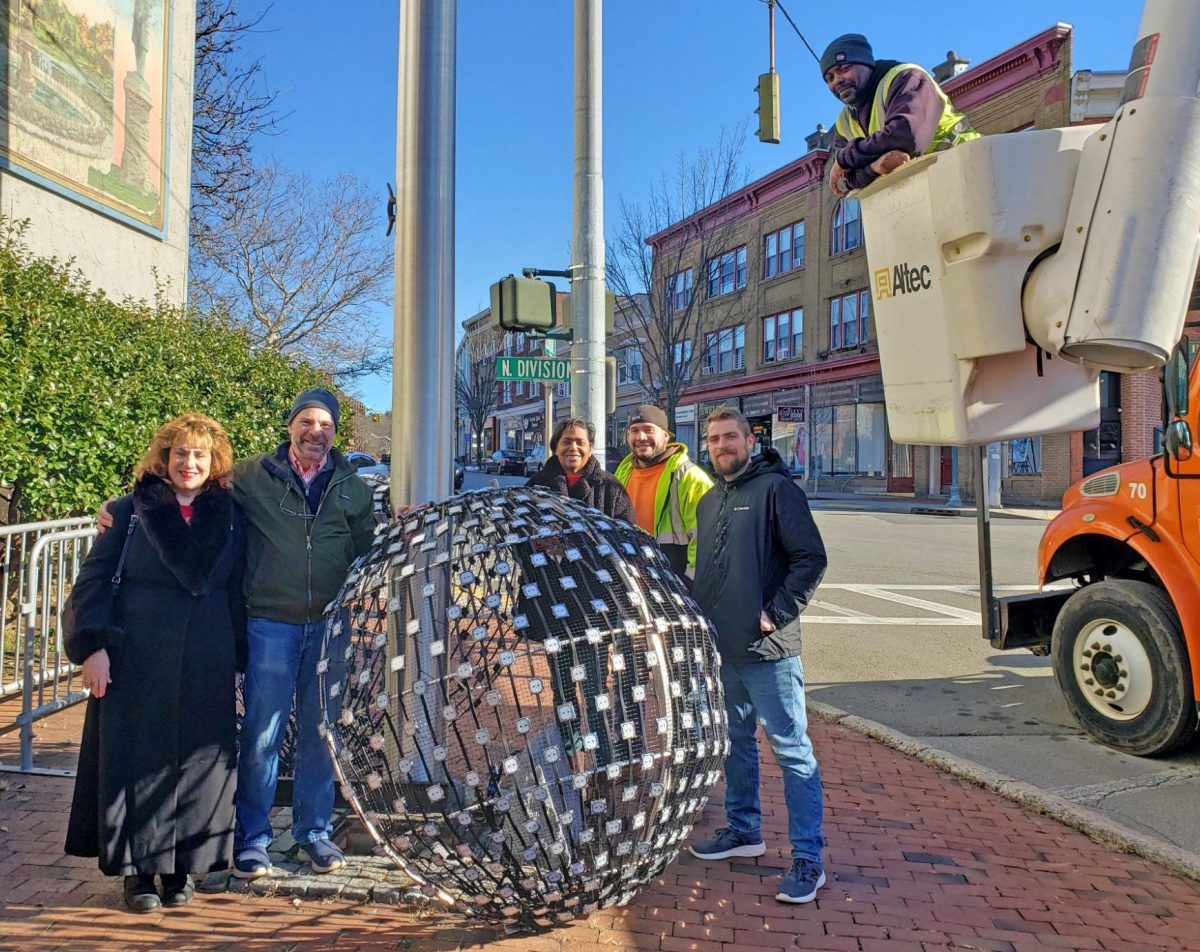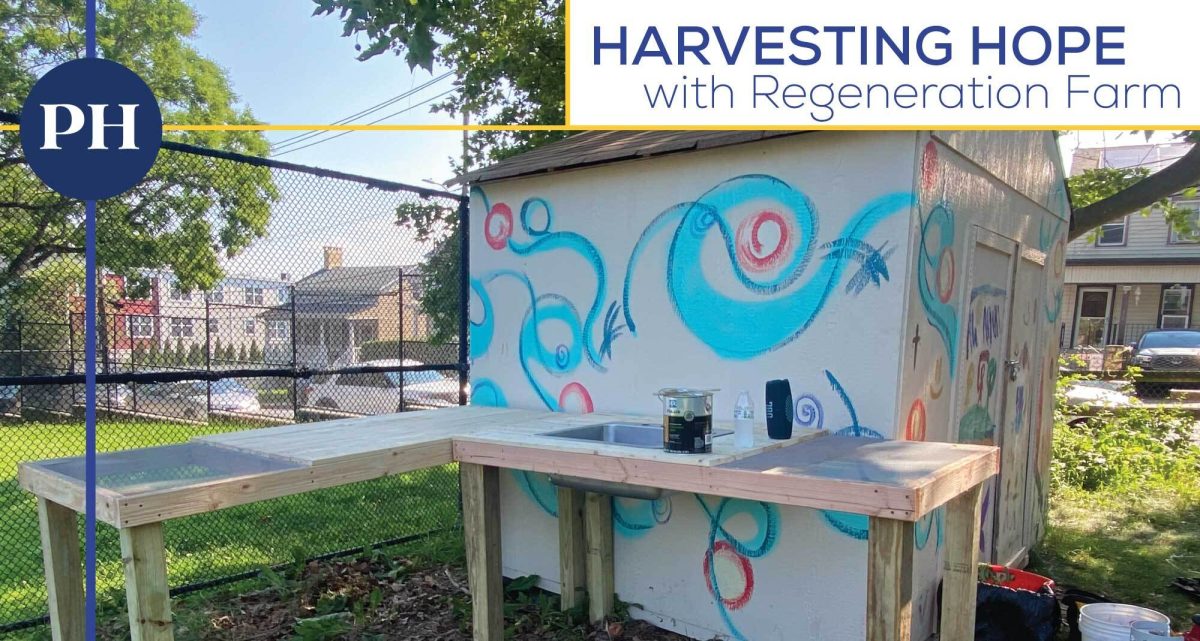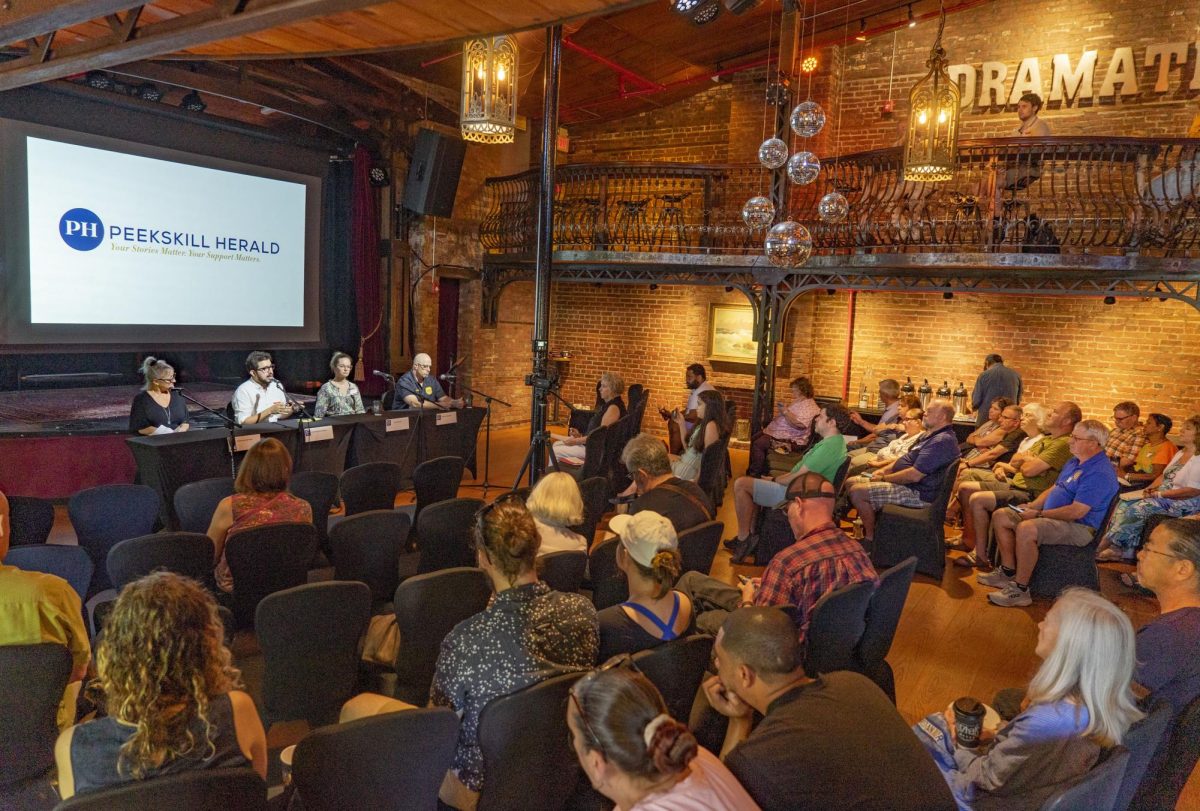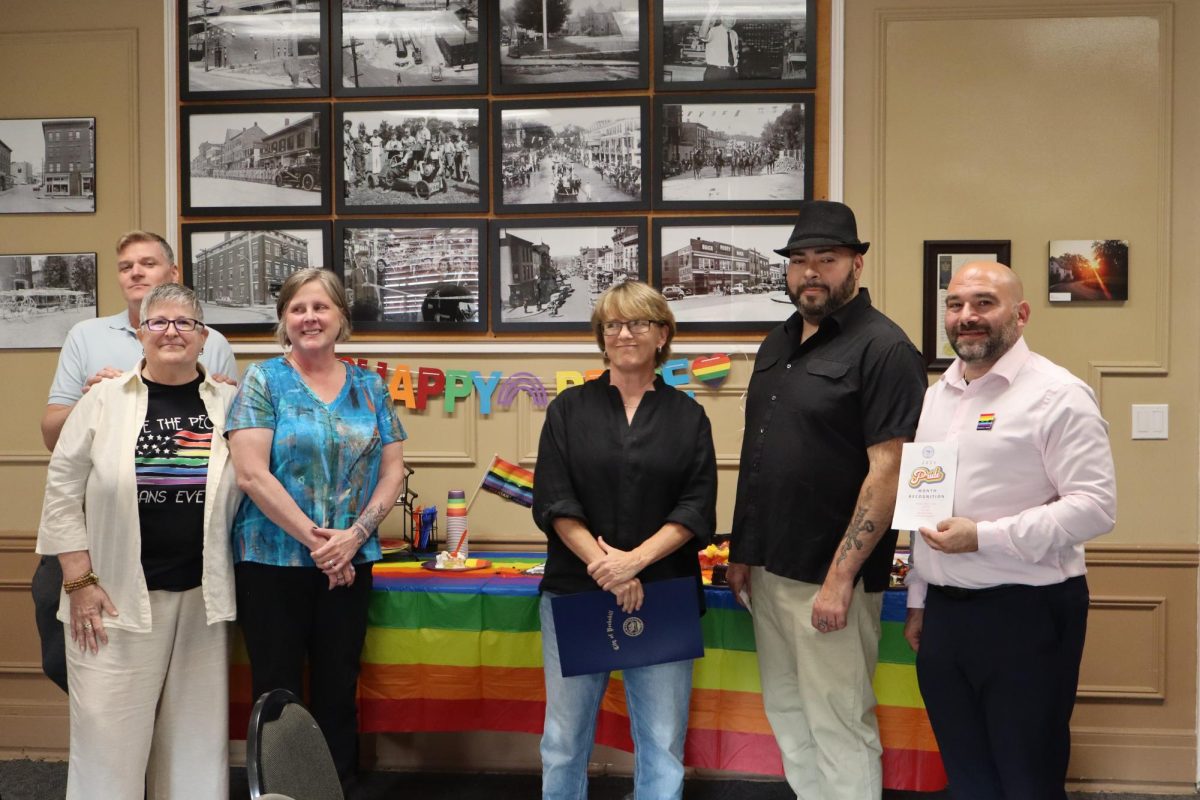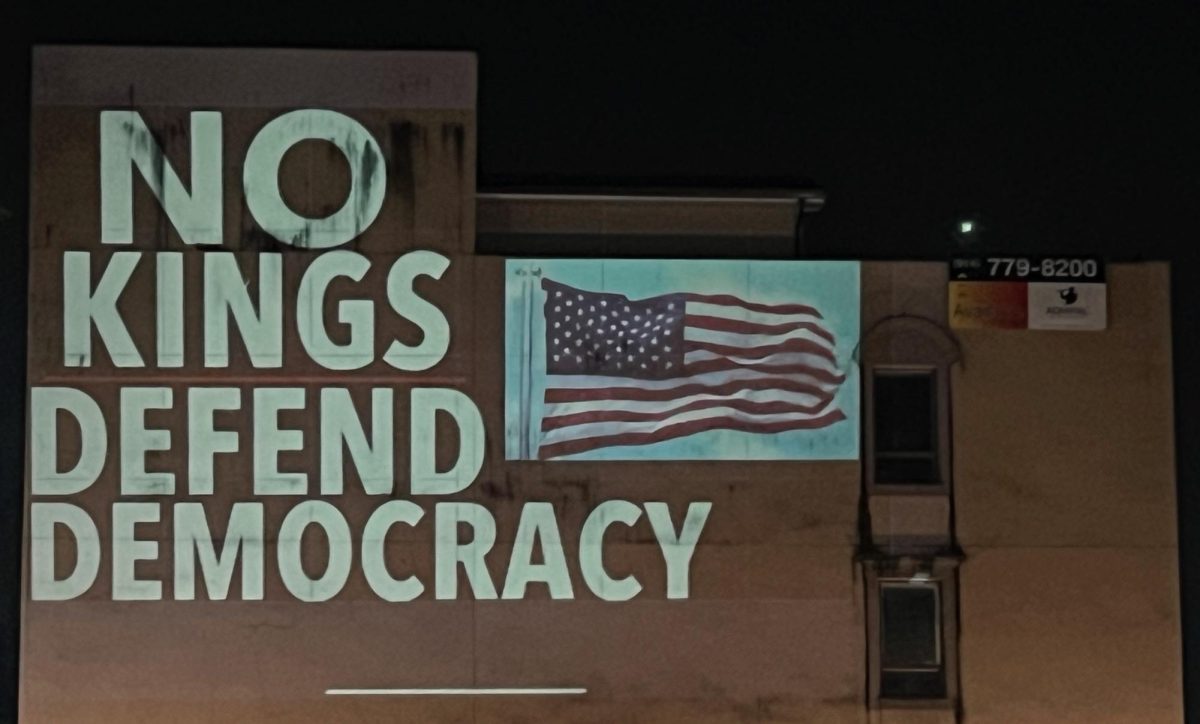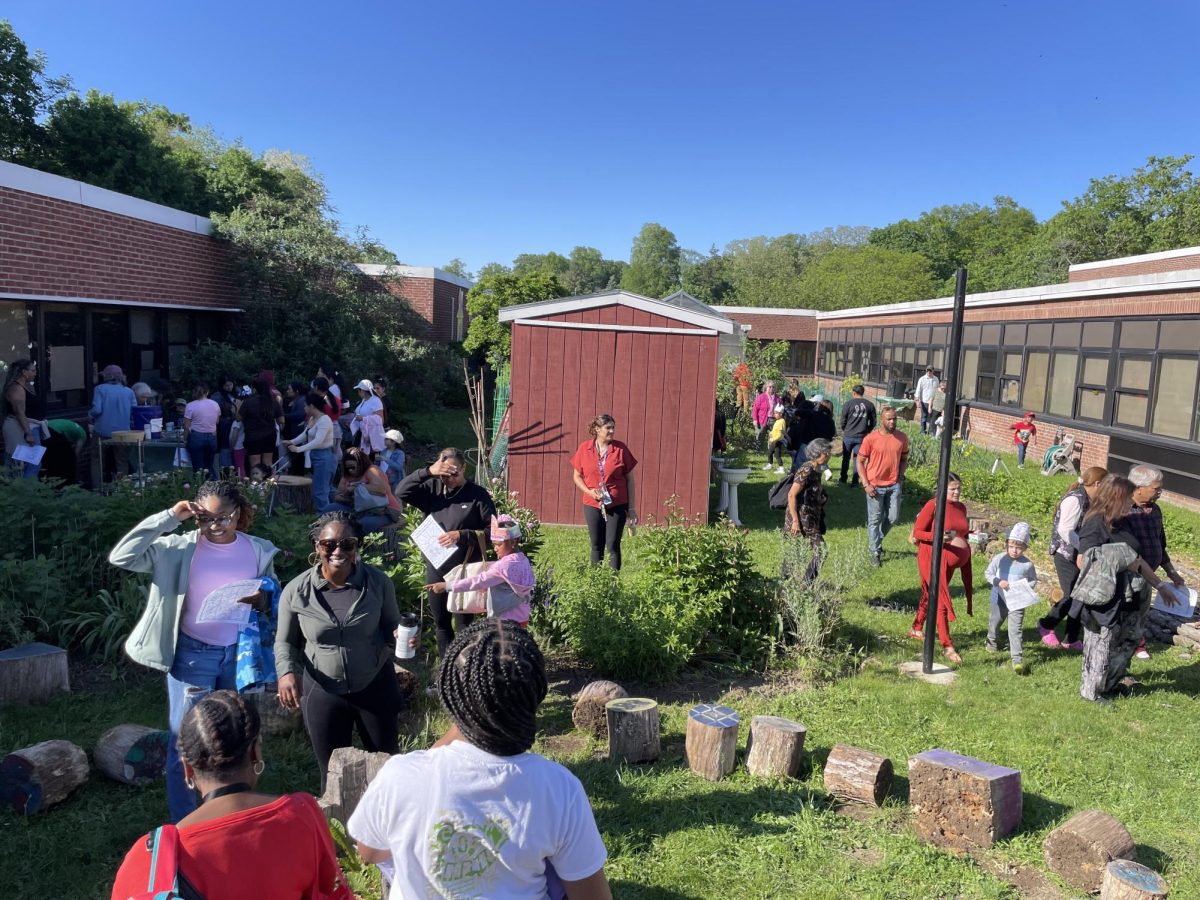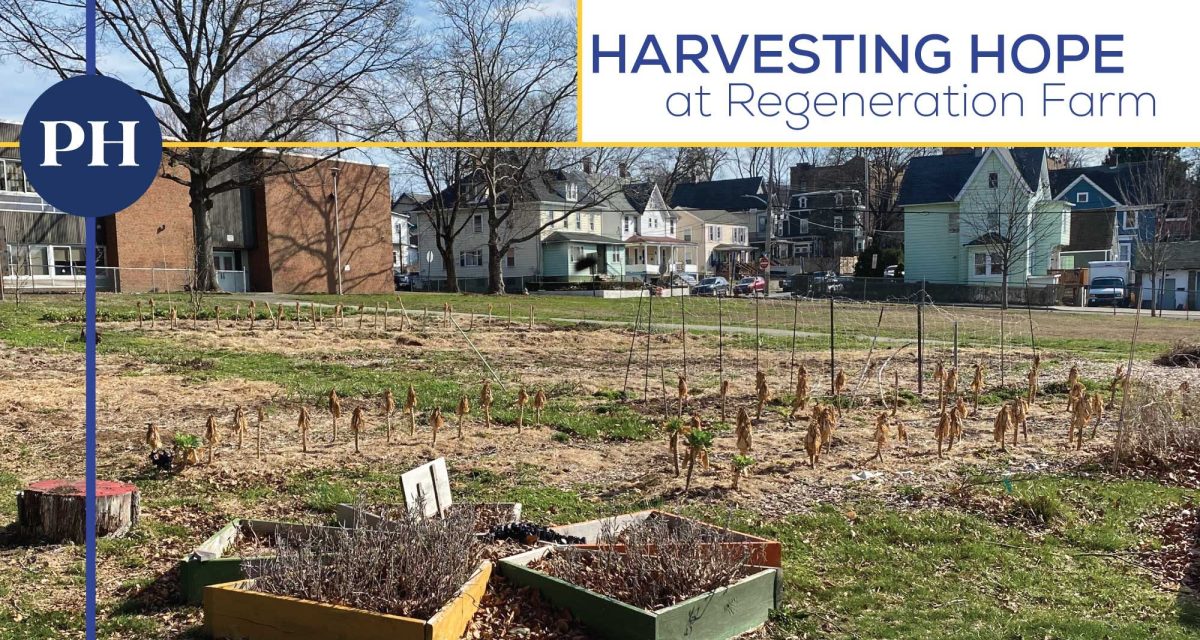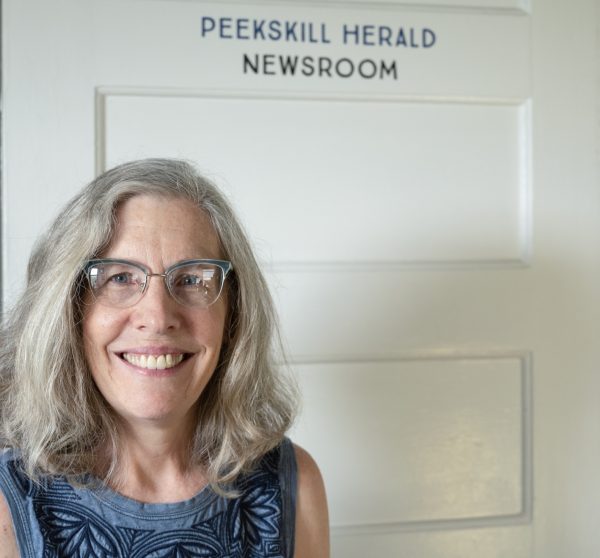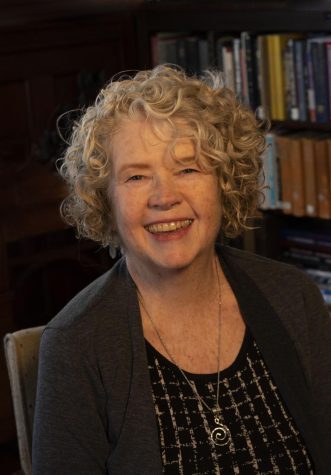The City of Peekskill’s Conservation Advisory Council (CAC) launched its renamed Marie Inserra Environmental Film Series with a screening of Radioactive: The Women of Three Mile Island on October 4 at the Jacob Burns Film Center in Pleasantville.
Radioactive, the 2022 multi-award winning feature documentary, tells the story of the 1979 Three Mile Island nuclear power plant meltdown through the eyes of the homemakers and lawyers who took the community’s case to the Supreme Court. The story of women fighting back against the nuclear industry is a fitting first film in the renamed Marie Inserra Environmental Film Series as Inserra herself was a fighter.
Marie Inserra was a local environmental activist who died from cancer in July. She helped spearhead the grassroots effort to stop Holtec, the corporation decommissioning Indian Point nuclear power plant, from dumping radioactive tritiated wastewater into the Hudson River. Governor Hochul signed a bill in August to prohibit the release of wastewater into the Hudson as a result of the attention and support these efforts garnered.
Inserra, along with fellow Peekskill CAC member Janine Melillo, created the Peekskill CAC Environmental Film Series in 2021. Radioactive was on the list of films to be screened as part of that series. When the Peekskill CAC unanimously agreed to rename the film series and dedicate it to Inserra, Radioactive was “the perfect choice for the Marie Inserra Environmental Film Series Event,” said Melillo. Donations made in lieu of flowers after Marie’s death helped pay for the theater rental.
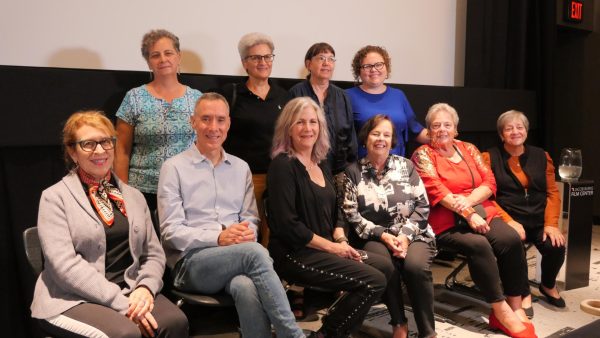
“We wanted to honor her and recognize the tremendous impact she had through her environmental advocacy,” Melillo said. “Her work as co-chair of the film series was just one of many ways that she advocated for environmental issues by educating people in order to motivate them to fight alongside her. Our vision is to keep the series going in her memory and continue her life’s work.”
Scores of people attended the viewing — every one of the 70 seats in the theater was filled. After the film, the audience heard a panel discussion moderated by CAC member Courtney Williams. The audience asked questions of a six-member panel that included director Heidi Hutner, the film’s editor and producer Simeon Hutner, and three of the women involved in the fight. Joanne Doroshow, who as a young attorney worked with the four mothers, also participated in the panel discussion.
The ‘stars’ of the film are: Paula Kinney, Joyce Corradi, Lynne Bernabei, and Linda Braasch. They were all present for the panel discussion except Paula Kinney. Director Hutner, who is also a professor of environmental humanities and gender studies at Stony Brook University, said it took her five years to bring the documentary to life. Many of the film’s scenes include archival footage from March of 1979 when the accident occurred.
The documentary is described on the Radioactive: The Women of Three Mile Island’s website as a story about a battle of wills, hubris, and energy: atomic, maternal, moral and feminist. The promotion goes on to explain how at the prompting of Heidi Hutner, the four original ‘concerned’ mothers, a two-woman legal team and a reporter, now all much older, wiser, and bolder, break open years of corporate silencing and nuclear industry doublespeak, and tell their stories about the Three Mile Island nuclear plant accident, the worst commercial nuclear reactor meltdown in US history.
.“This is the largest panel we’ve ever had,” said Melillo. “We were just blessed that they were willing to come.”
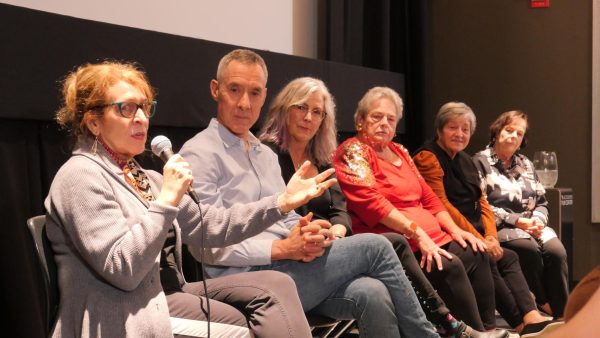
After the screening and panel discussion, attendees were invited to Soul Brewing Company in Pleasantville for a reception honoring Inserra where a toast was offered in memory of her and to the work of activism in which she passionately engaged.
The panelists, who drove three and a half hours from Pennsylvania that day to attend the screening at Jacob Burns, were also at the reception. They mingled with guests and told a few more of their stories including how they discovered their home phones were wiretapped during the period of time after the meltdown. They learned from a Nuclear Regulatory Commission official that the energy company that owned Three Mile Island was tapping their phones because they thought the women might bomb the plant. That was just one of the ways their lives were upended during the meltdown.
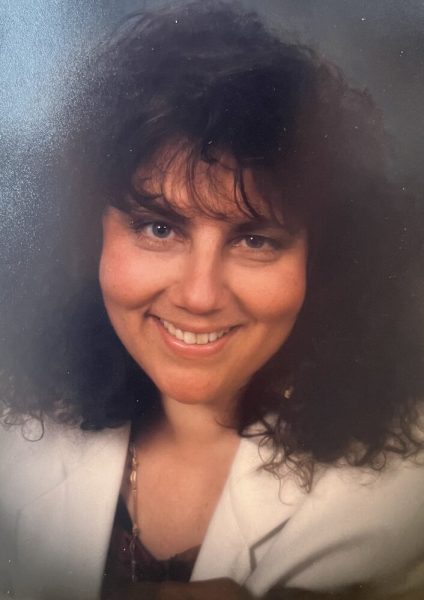
Since its inception, the CAC’s film series has covered a number of topics, including polluting and restoring the Hudson; loss of pollinators; soil regeneration; and climate change, among others. The films have all been selected with the film series’ goal in mind: “to educate people about environmental issues that have impacts ranging from local to global … and to motivate people to act for change at the local and state level.”


